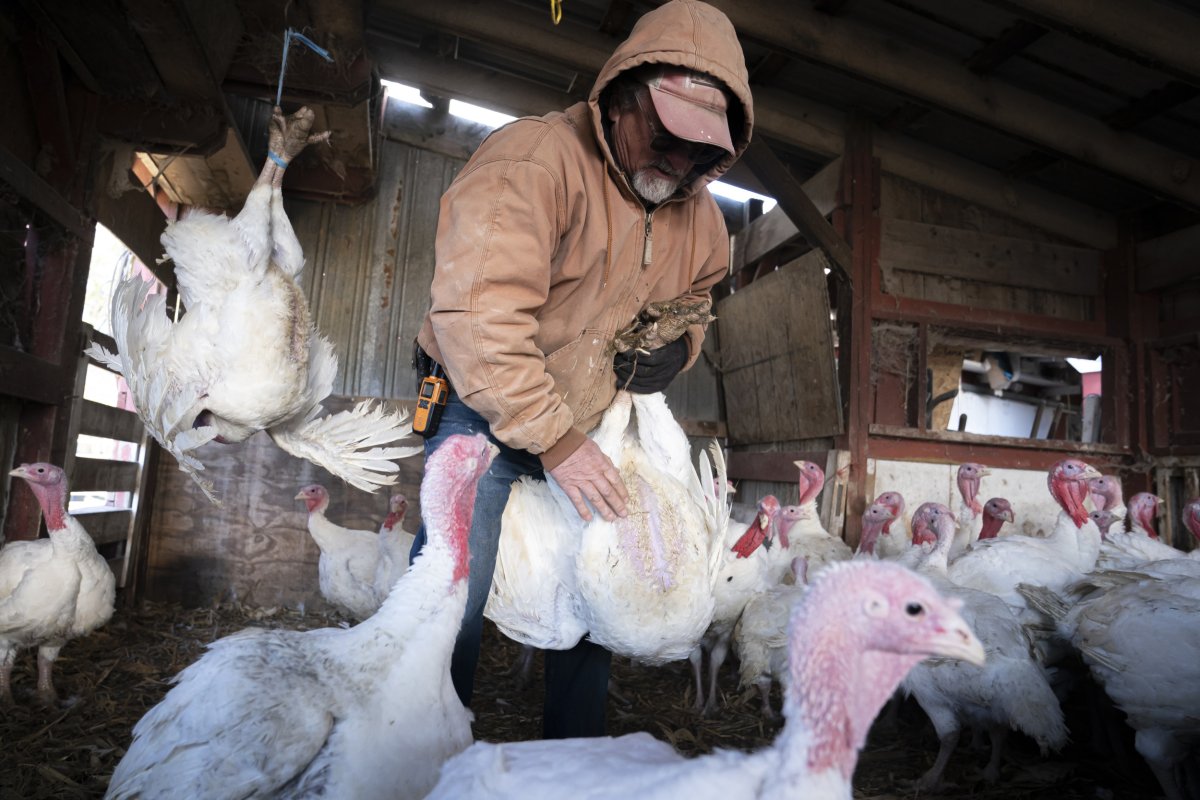Texas on Monday reported its first human case of avian influenza, also known as bird flu, which highlights the worry that the virus could spread among humans across several states.
The recent outbreak of avian bird flu has already been reported among dairy cows in five states. There are no signs that the virus has evolved to more easily infect humans, but the Centers for Disease Control and Prevention (CDC) is monitoring people who may have been in contact with infected birds and animals.
Texas' case marks the second time someone in the United States has been infected with avian influenza, following a 202 case in Colorado. The person in Texas is believed to have been in contact with an infected cow and state officials said the risk of person-to-person transmission is believed to be low. Their primary symptom is conjunctivitis, according to Texas health officials.
The first and only other case of avian influenza in the U.S. was identified in in April 2022, in Colorado. The person had direct exposure to poultry and was involved in culling of animals suspected to have the virus. They had fatigue for a few days and then recovered.
Bird flu, is a type of influenza virus that primarily affects birds but can spread to humans and other animals. These viruses have garnered significant attention due to their potential to cause widespread disease in poultry industries and the risk of cross-species transmission to humans, leading to severe respiratory diseases.
The virus is highly contagious among birds, and outbreaks can lead to substantial economic losses if infected and exposed birds need to be culled to prevent transmission. Surveillance programs are in place to detect the virus in both wild and domestic bird populations.
The virus has spread from birds to cows in Idaho, Kansas, Texas, Michigan and New Mexico. It's sparked concerns about the potential for infection in people who work in farming and food production.
"The fact that they are susceptible — the virus can replicate, can make them sick — that is something I wouldn't have predicted," Richard Webby, an influenza virologist at St. Jude Children's Research Hospital, told the New York Times.

Although human cases of avian influenza in the U.S. have been rare, they could be severe and possibly fatal.
Infections in humans have typically been linked to direct or close contact with infected birds, or contaminated environments. There is also the fear of the virus evolving to allow human-to-human transmission, which could lead to a pandemic.
Symptoms of avian flu in humans can range from no symptoms or mild symptoms to severe disease that's resulted in death, according to the CDC. H5N1, which the person in Texas was infected with, is one of two variants that's most common in humans and has the highest mortality.
Uncommon Knowledge
Newsweek is committed to challenging conventional wisdom and finding connections in the search for common ground.
Newsweek is committed to challenging conventional wisdom and finding connections in the search for common ground.
About the writer
Jenni Fink is a senior editor at Newsweek, based in New York. She leads the National News team, reporting on ... Read more





